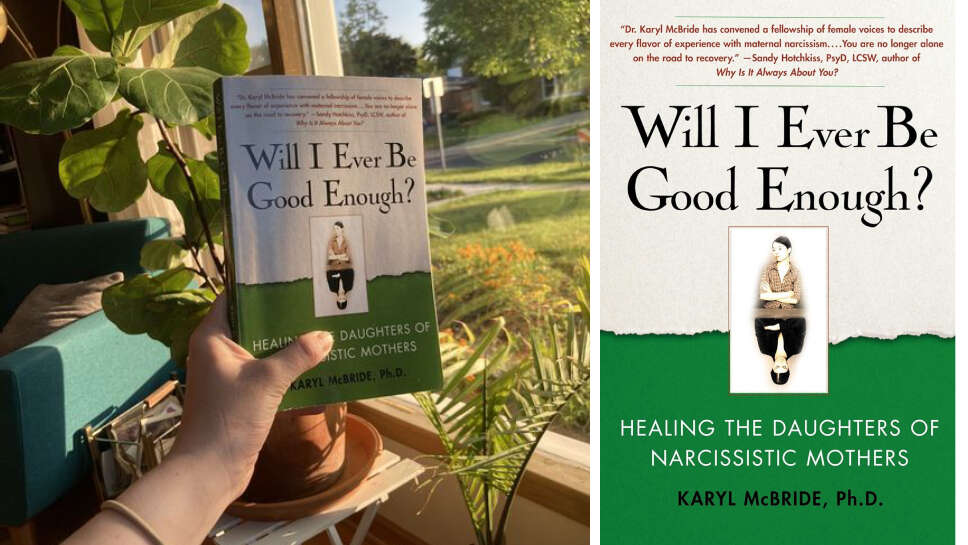7 Practical Lessons from Will I Ever Be Good Enough? by Dr. Karyl McBride: Healing Daughters of Narcissistic Mothers

Healing the Daughters of Narcissistic Mothers, Dr. Karyl McBride, Ph.D., provides insightful analysis for daughters raised under the impact of narcissistic mothers in Will I Ever Be Good Enough? Deep emotional wounds from these relationships can affect everything including personal identity and self-esteem. Seven useful lessons in McBride's book will enable daughters of narcissistic mothers to recognise their experiences and start active recovery projects. This is a closer examination of those ideas and how they might direct healing.
1. Acknowledge the Effects of Narcissism.
Understanding the nature of narcissism marks the first step towards recovery. Many daughters struggle to identify exactly what is wrong in their connection with their mother since narcissistic behaviours often include subtle manipulation, emotional neglect, or gaslighting. McBride exhorts readers to recognise the features of narcissistic behaviour, including a lack of empathy, self-centredness, and an unrelenting desire of validation. Understanding these behaviours will allow you to see how your mother's activities have moulded your sense of self, self-worth, and emotional health, therefore guiding your feelings of confusion or inadequacy. The first important step in releasing their impact is realising how these dynamics have affected you, not about blaming yourself.
2. Recognise Your Emotions.
Daughters of narcissistic mothers go through a spectrum of emotions—pain, uncertainty, fury, even guilt for experiencing these things. McBride emphasises the need of confirming these feelings free from self-judging. You might have been taught years ago to ignore or stifle your emotions in favour of those of your mother. Healing begins when you allow yourself to sense and recognise what is going on inside. Whether your feelings be resentment, irritation, or grief, letting yourself completely experience and communicate them releases you. It's a necessary component of the healing process since it lets you rediscover your actual self and needs, which might have been buried for some time.
3. Establish sensible limitations.
Many daughters of narcissistic mothers struggle with the important ability of setting limits. Often neglecting their children's needs or failing to honour personal space, narcissistic mothers According to McBride, establishing reasonable limits is about safeguarding your emotional well-being and regulating your life, not about being nasty or unloving. Learning how to say "no" and establish distance when needed helps you to recover your autonomy and break the cycle of emotional manipulation. Although it can be difficult, particularly if your mother has never valued them, setting boundaries is vital for your mental health and for creating better connections down road.
4. nurture self-compassion.
Growing up with a narcissistic mother often produces a sharp inner critic. Many girls absorb the impression that they are never good enough or that they constantly satisfy less than their mother expects. McBride exhorts you to cultivate self-compassion—that is, treat oneself with compassion and understanding, much as you would a close friend going through difficulty. This entails substituting loving, encouraging messages for the negative self-talk. Self-compassion enhances your capacity to meet life's obstacles with fortitude and helps heal the deep wounds of inadequacy that frequently surface in these partnerships.
5. Ask for Expert Advice
McBride also stresses for everyone recovering from a narcissistic background the value of proper therapy. A therapist can provide coping mechanisms, a secure environment for you to process your emotions, and direction on negotiating the complexity of your connection with your mother. Professional guidance is priceless since it provides perspective and guides you towards understanding of your past events, thereby enabling you to take charge of your recovery process. In addition, a therapist may assist you towards better relational dynamics and help you escape cycles of emotional abuse.
6. Create a support system.
McBride emphasises the need of creating a solid support network since healing from a narcissistic relationship could be isolated. It might make all the difference to surround yourself with those who share your experiences. Whether it's friends, relatives, or support groups, having a network of people who listen without judgement and offer validation can help one feel like they belong and help to lessen the loneliness sometimes accompanying emotional abuse. A robust support system delivers not just emotional relief but also the encouragement you need to continue moving forward in your recovery.
7. Concentrate on Personal Development.
McBride exhorts readers at last to pay close attention to their own development. Often discouraging their daughters from following their own hobbies and aspirations, Narcissistic mothers leave their daughters to give their mother's wants top priority. Examining what makes you happy, what you are passionate about, and who you are outside of your connection with your mother will help you to escape this cycle. Pursuing your own aspirations and personal growth not only enhances your feeling of self but also encourages independence, therefore enabling you to create a life that is real and satisfying.
Ultimately, will I ever be good enough? provides doable tools and techniques for daughters of narcissistic mothers to recover their sense of self and start the healing journey. These daughters can start to free themselves from the emotional bonds of their past and create better, more fulfilling lives by realising the impact of narcissism, acknowledging their feelings, setting boundaries, developing self-compassion, seeking therapy, building a support system, and emphasising personal development.
--
-- Thanks For Reading --
You Might Also Like: 7 Practical Life Lessons from Wildfires by Jessi Green
